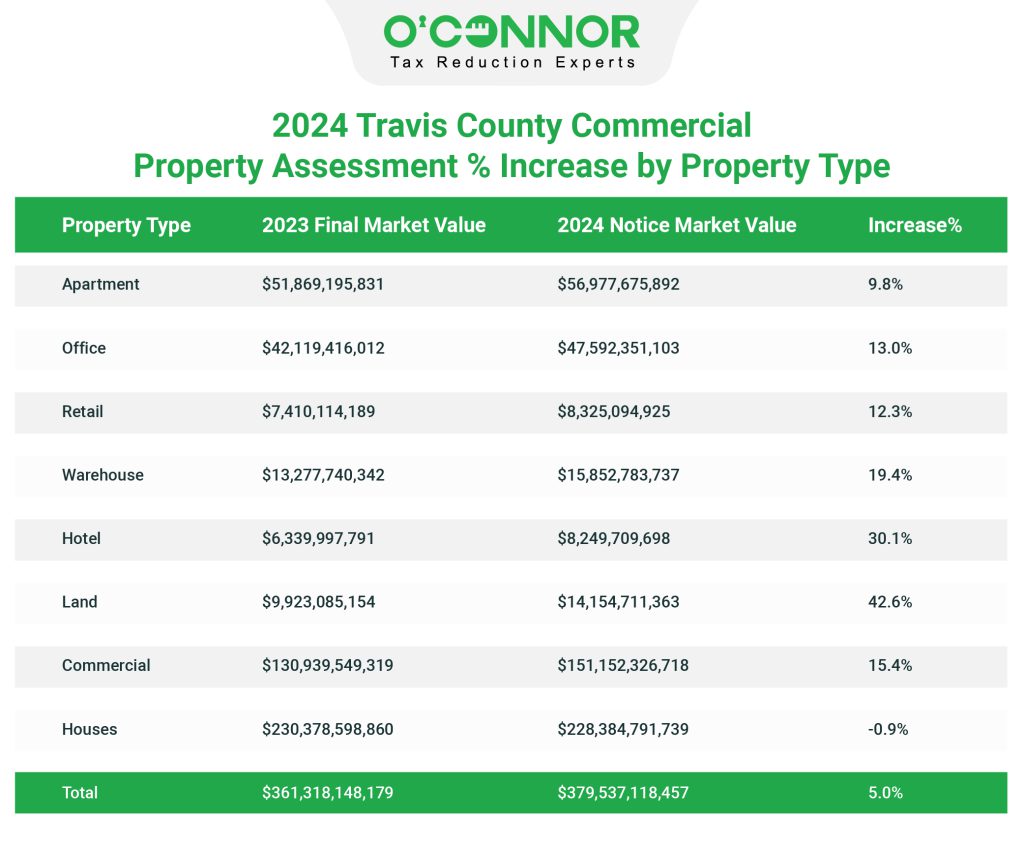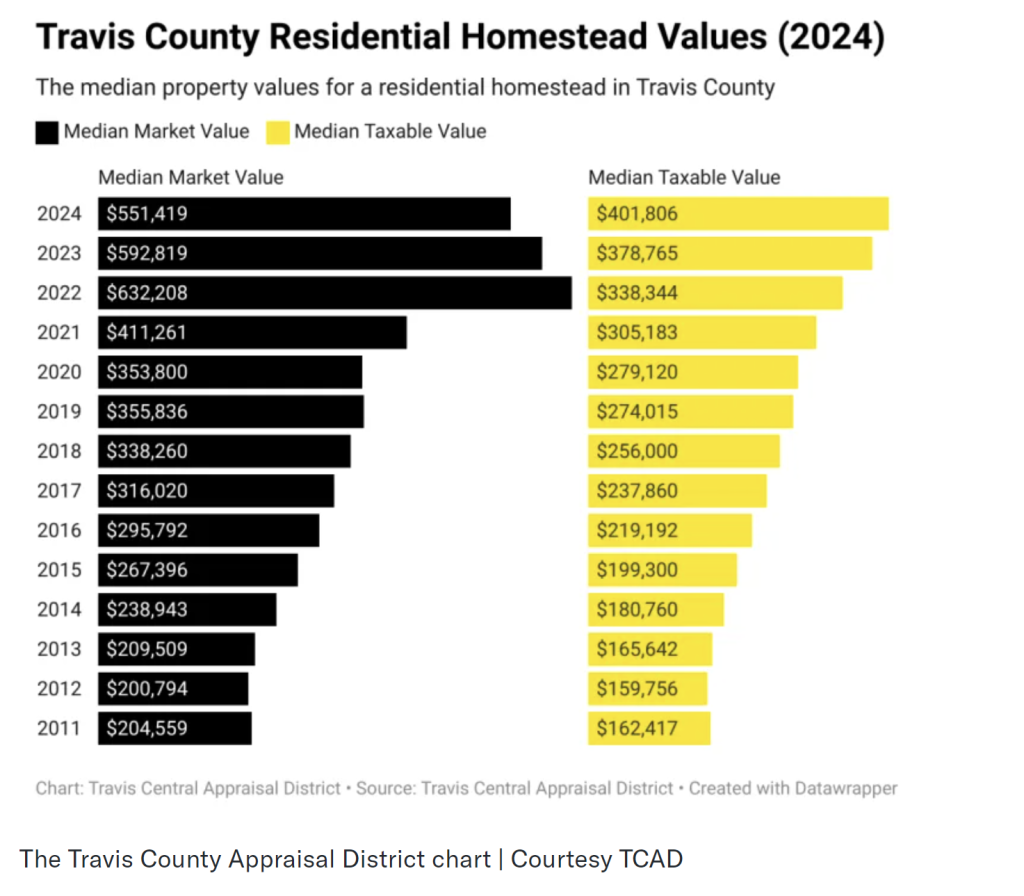Travis Central Appraisal District: Your Ultimate Guide To Property Tax Assessments
Property taxes play a significant role in the financial management of homeowners in Travis County, Texas. The Travis Central Appraisal District (TCAD) serves as the backbone of property valuation in this region. Understanding TCAD's role and processes is crucial for property owners to ensure fair assessments and manage their tax liabilities effectively. In this comprehensive guide, we will explore everything you need to know about TCAD, from its functions to practical tips for appealing your property tax assessment.
The Travis Central Appraisal District (TCAD) is responsible for appraising all properties within Travis County to determine their market value. This appraisal directly impacts property tax bills, making it essential for homeowners to understand how the system works. As property values fluctuate due to market conditions, construction, or renovations, staying informed about TCAD's procedures can help you make better financial decisions.
This guide aims to provide a detailed overview of TCAD's operations, including its history, appraisal methods, and the appeals process. Whether you're a new homeowner or a long-time resident, gaining insight into TCAD's role will empower you to navigate the complexities of property taxation with confidence. Let's dive into the details and uncover how TCAD influences your property's value and tax obligations.
- What Does Air Bnb Stand For A Comprehensive Guide To Understanding Airbnb
- Michael Vick Career Stats A Comprehensive Analysis Of His Nfl Journey
Table of Contents
- Introduction to Travis Central Appraisal District
- History of Travis Central Appraisal District
- Functions of Travis Central Appraisal District
- The Appraisal Process Explained
- How Property Taxes Are Calculated
- Appealing Property Tax Assessments
- Common Questions About Travis Central Appraisal District
- Resources for Property Owners
- Impact of Market Trends on Property Valuations
- Conclusion and Next Steps
Introduction to Travis Central Appraisal District
The Travis Central Appraisal District (TCAD) is an independent government entity responsible for appraising all properties within Travis County, Texas. Established to ensure fair and accurate property valuations, TCAD plays a vital role in the local tax system. Property owners rely on TCAD's assessments to determine their tax liabilities, making it an essential organization for residents and businesses alike.
Role of TCAD in Property Valuation
TCAD's primary responsibility is to assess the market value of all properties within its jurisdiction. This includes residential homes, commercial buildings, agricultural lands, and industrial properties. By conducting thorough evaluations, TCAD ensures that property taxes are distributed fairly among taxpayers based on current market conditions.
Importance of Accurate Appraisals
Accurate property appraisals are crucial for maintaining a balanced tax system. When properties are overvalued, homeowners may face higher tax bills than necessary. Conversely, undervalued properties can lead to insufficient funding for public services such as schools, infrastructure, and emergency services. TCAD strives to strike a balance by adhering to standardized appraisal practices and regularly updating property records.
- Kelly Ripa Net Worth Exploring The Wealth And Career Of A Television Icon
- Is Miley Cyrus Married The Ultimate Guide To Her Love Life And Relationship Status
History of Travis Central Appraisal District
The Travis Central Appraisal District was established in 1982 under Texas law to centralize property appraisal processes in Travis County. Prior to its creation, individual school districts were responsible for appraising properties, leading to inconsistencies and disputes among taxpayers. The formation of TCAD aimed to address these issues by implementing uniform appraisal standards across the county.
Key Milestones in TCAD's Development
- 1982 - TCAD is officially established as an independent appraisal district
- 1990s - Introduction of digital appraisal systems to improve accuracy and efficiency
- 2000s - Expansion of online resources for property owners to access appraisal data
- 2010s - Enhanced transparency through public access to appraisal records and appeal processes
Functions of Travis Central Appraisal District
The primary functions of TCAD revolve around property appraisal and maintaining accurate records. These responsibilities include identifying all taxable properties, determining their market value, and providing appraisal data to local taxing entities. TCAD also manages the appeals process for property owners who dispute their appraisals.
Property Identification and Data Management
TCAD maintains a comprehensive database of all properties within Travis County. This includes detailed information such as property type, location, size, and improvements. By regularly updating these records, TCAD ensures that its appraisals reflect the most current property conditions.
Market Value Determination
Determining market value involves analyzing recent sales data, property characteristics, and market trends. TCAD appraisers use standardized methods to ensure consistency and fairness in their assessments. This process is crucial for setting accurate property tax rates that align with current market conditions.
The Appraisal Process Explained
The appraisal process conducted by TCAD involves several key steps to ensure accurate property valuations. These steps include data collection, market analysis, and final appraisal determination. Understanding this process can help property owners anticipate their tax liabilities and identify potential issues before they arise.
Data Collection
TCAD gathers data from various sources, including public records, property inspections, and market reports. This information forms the foundation of the appraisal process and ensures that all properties are evaluated based on the most up-to-date data available.
Market Analysis
Using the collected data, TCAD appraisers analyze market trends and property characteristics to determine fair market values. This analysis considers factors such as location, property size, age, and recent sales of similar properties in the area.
How Property Taxes Are Calculated
Property taxes in Travis County are calculated based on the appraised value of a property and the tax rates set by local taxing entities. TCAD provides these entities with accurate appraisal data, which they use to determine individual tax bills. Understanding the calculation process can help property owners budget for their tax obligations effectively.
Appraised Value vs. Taxable Value
It's important to note the distinction between appraised value and taxable value. The appraised value represents the estimated market value of a property, while the taxable value reflects any applicable exemptions or limitations. TCAD calculates the taxable value by subtracting exemptions from the appraised value before applying the tax rate.
Factors Influencing Tax Rates
Local taxing entities, such as school districts and municipalities, set tax rates based on their budgetary needs and revenue projections. These rates can vary annually, impacting property tax bills even if appraised values remain constant. Property owners should monitor changes in tax rates to understand how they affect their overall tax liabilities.
Appealing Property Tax Assessments
If a property owner believes their appraisal is inaccurate or unfair, they have the right to appeal the assessment. TCAD provides a structured appeals process designed to address disputes and ensure fair appraisals for all taxpayers. Understanding this process can empower property owners to challenge assessments they believe are unjustified.
Steps to Appeal a Property Tax Assessment
- Review your appraisal notice and gather supporting documentation
- Submit a protest form to TCAD within the specified deadline
- Attend an informal review with a TCAD appraiser to discuss your concerns
- If necessary, proceed to a formal hearing before the Appraisal Review Board (ARB)
Tips for a Successful Appeal
To increase your chances of a successful appeal, prepare thoroughly by gathering evidence such as recent sales of comparable properties, property condition reports, and any other relevant documentation. Present your case clearly and concisely, focusing on specific issues with the appraisal. Engaging a professional property tax consultant can also be beneficial for complex cases.
Common Questions About Travis Central Appraisal District
Property owners often have questions about TCAD's operations and the appraisal process. Below are some frequently asked questions and their answers to help clarify common concerns:
How Often Are Properties Appraised?
TCAD appraises all properties annually to reflect current market conditions and property changes. This ensures that tax assessments remain accurate and up-to-date.
Can I Request a Reappraisal?
Yes, property owners can request a reappraisal if they believe their property's value has changed significantly since the last appraisal. Submit a formal request to TCAD, providing evidence to support your claim.
Resources for Property Owners
TCAD offers several resources to assist property owners in understanding the appraisal process and managing their tax obligations. These resources include online tools, educational materials, and contact information for TCAD staff members.
Online Property Search
TCAD's online property search tool allows property owners to view their appraisal records, tax history, and other relevant information. This resource provides transparency and empowers homeowners to stay informed about their property's valuation.
Education and Training Programs
TCAD occasionally hosts workshops and seminars to educate property owners about the appraisal process and tax regulations. Attending these events can help you gain valuable insights and improve your understanding of TCAD's operations.
Impact of Market Trends on Property Valuations
Market trends significantly influence property valuations conducted by TCAD. Factors such as economic conditions, interest rates, and population growth can impact property values and, consequently, tax assessments. Staying informed about these trends can help property owners anticipate changes in their appraisals and plan accordingly.
Current Market Conditions in Travis County
As of 2023, Travis County continues to experience strong real estate market growth, driven by factors such as job opportunities, quality education systems, and desirable living conditions. These conditions contribute to rising property values, which TCAD reflects in its annual appraisals.
Conclusion and Next Steps
The Travis Central Appraisal District plays a critical role in ensuring fair and accurate property valuations in Travis County. By understanding TCAD's functions, the appraisal process, and your rights as a property owner, you can better manage your tax obligations and protect your financial interests. Take advantage of available resources to stay informed and proactive in addressing any concerns about your property's valuation.
We encourage you to explore TCAD's online tools and educational programs to deepen your knowledge of property taxation. If you have questions or need assistance with appealing your appraisal, don't hesitate to contact TCAD directly. Your participation in the appraisal process helps maintain a fair and transparent tax system for all residents of Travis County.
Feel free to share this guide with fellow property owners or leave a comment below with your thoughts and experiences. Together, we can foster a community of informed and engaged taxpayers who contribute to the prosperity of our region.
Sources:
- Travis Central Appraisal District Official Website
- Texas Comptroller of Public Accounts Property Tax Guide
- Internal Revenue Service Guidelines on Property Taxes
- Jeff Bridges Movies And Tv Shows A Comprehensive Guide To His Iconic Career
- Nicole Kidmans Health Is Nicole Kidman Ill A Comprehensive Look

TCAD Travis Central Appraisal District Reappraisal Plan 2015 2016

Travis Central Appraisal District Oconnor

Travis Central Appraisal District Oconnor